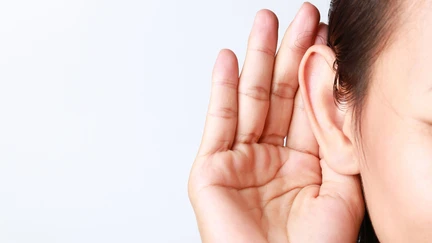All Ears: Improving Your Listening Skills - World Listening Day July 18

“If speaking is silver, then listening is gold.”
Turkish Proverb
Listening is an essential part of communicating effectively and, in order to make ourselves understood, we need to communicate effectively.
Study results released late last year suggest that listening well is an extremely useful skill for entrepreneurs.
By listening attentively entrepreneurs are more able “… to acquire and interpret quality information from stakeholders more effectively to build or adapt the capabilities necessary for venture growth”.
It isn’t just entrepreneurs though – everyone, no matter their role in a workplace, should be working to actively listen.
To actively listen to someone – and listening is not the same as hearing – is a sign of respect. It also helps gain a person’s trust and prevent misunderstandings.
- To understand customers/clients we need to listen carefully to what is being said
- To understand what management requires we need to listen carefully to what is said.
- To understand what colleagues mean we need to listen carefully to what is said.
- To understand staff we need to listen carefully to what is said.
We also need to listen carefully for what is not being said.
And that requires focus and attention.
With World Listening Day coming up this week's blog presents some resources to assist with developing your listening skills.
First though – take this test from Psychology today to see how good your listening skills really are.
Watch:
- The Art of Active Listening | The Harvard Business Review Guide
You might think you’re a good listener, but common behaviors like nodding and saying “mm-hmm” can actually leave the speaker feeling unheard or dismissed. The truth is that mastering the art of listening involves a whole host of other skills as well. You need to do more. - 5 ways to Listen Better | Julian Treasure | TED
In our louder and louder world, says sound expert Julian Treasure, "We are losing our listening." In this short, fascinating talk, Treasure shares five ways to re-tune your ears for conscious listening -- to other people and the world around you.
Short reads: - Listening Is the Key to Effective Communication
Leadership consultant Ken Blanchard discusses why having excellent communication skills are essential for every manager. - How to Become a Better Listener
Ethics columnist Robin Abrahams and Harvard Business School professor Boris Groysberg offer tips on how leaders can become more active listeners. - The Gift of Listening
Psychotherapist and coach, Katina Cremona discusses effective - and non-effective listening styles. - Leadership-Level Listening: The Quiet Superpower
Too often, leaders neglect to build up their listening skills as they advance, which can lead to alienating key talent and missing critical information. This article offers some advice on how to turn that around.
Learn with LinkedIn Learning:
- Improving Your Listening Skills
Just as public speaking is a skill that you can hone through practice, good listeners aren't in possession of a special, unattainable gift—careful listening is a skill that you can learn. In this course, join career expert Dorie Clark as she helps uncover why it's hard to listen well, and how to develop the mindset of a good listener. She also provides multiple listening strategies to help you manage when you're the one not being listened to, how to keep yourself from interrupting, and how to listen to what's not being said. In addition, she explains how to let others know that they've been heard, and how to listen with patience when you don't feel engaged with someone. - Effective Listening
Listening is a critical competency, whether you are interviewing for your first job or leading a Fortune 500 company. Surprisingly, relatively few working professionals have ever had any formal training in how to listen effectively. In this course, communications experts Tatiana Kolovou and Brenda Bailey-Hughes show how to assess your current listening skills, understand the challenges to effective listening (such as distractions!), and develop behaviors that will allow you to become a better listener—and a better colleague, mentor, and friend.
Longer reads:
- The art of listening by Erich Fromm, 30th anniversary edition, Revised edition. 2024
- Deep Listening: Transform Your Relationships with Family, Friends, and Foes by Emily Kasriel, 2025
- How to listen by Thích Nhat Hạnh, 2024. Also available as an ebook
- Just listen : discover the secret to getting through to absolutely anyone by Mark Goulston, 2010. eAudiobook
- Power listening : mastering the most critical business skill of all by Bernard T. Ferrari, 2012
- The six elements of effective listening : how successful leaders transform communication through the power of listening by Harold Hillman, ebook